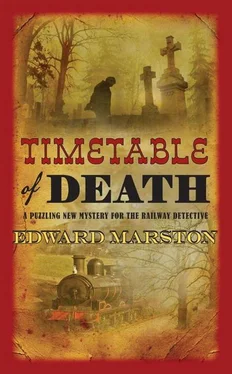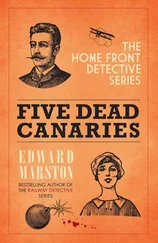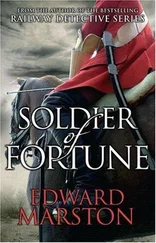Edward Marston - Timetable of Death
Здесь есть возможность читать онлайн «Edward Marston - Timetable of Death» весь текст электронной книги совершенно бесплатно (целиком полную версию без сокращений). В некоторых случаях можно слушать аудио, скачать через торрент в формате fb2 и присутствует краткое содержание. Год выпуска: 2015, ISBN: 2015, Издательство: ALLISON & BUSBY, Жанр: Исторический детектив, на английском языке. Описание произведения, (предисловие) а так же отзывы посетителей доступны на портале библиотеки ЛибКат.
- Название:Timetable of Death
- Автор:
- Издательство:ALLISON & BUSBY
- Жанр:
- Год:2015
- ISBN:9780749018122
- Рейтинг книги:4 / 5. Голосов: 1
-
Избранное:Добавить в избранное
- Отзывы:
-
Ваша оценка:
- 80
- 1
- 2
- 3
- 4
- 5
Timetable of Death: краткое содержание, описание и аннотация
Предлагаем к чтению аннотацию, описание, краткое содержание или предисловие (зависит от того, что написал сам автор книги «Timetable of Death»). Если вы не нашли необходимую информацию о книге — напишите в комментариях, мы постараемся отыскать её.
Timetable of Death — читать онлайн бесплатно полную книгу (весь текст) целиком
Ниже представлен текст книги, разбитый по страницам. Система сохранения места последней прочитанной страницы, позволяет с удобством читать онлайн бесплатно книгу «Timetable of Death», без необходимости каждый раз заново искать на чём Вы остановились. Поставьте закладку, и сможете в любой момент перейти на страницу, на которой закончили чтение.
Интервал:
Закладка:
Leeming turned to Wigg. ‘Do you have any suspects?’ he asked. ‘Are there any people who would profit directly from Mr Quayle’s death?’
‘Yes,’ said Wigg, seizing a chance to embarrass Haygarth. ‘One of them is standing right next to you, Sergeant.’
‘How dare you!’ exclaimed Haygarth.
‘Facts are facts, sir. There’s a vacancy for the chairmanship of the Midland Railway. Vivian Quayle was the obvious candidate but you also threw your hat into the ring. His death leaves the field clear for you,’ said Wigg, enjoying the other man’s obvious discomfort. ‘What’s more, you know Spondon intimately because you were born there.’ He stroked a side whisker as if it were a favourite cat. ‘I’m bound to find that a cause for suspicion.’
CHAPTER THREE
Peace had finally been restored at St Mary’s church and, although both disputants still nursed hurt feelings, a compromise had been reached. The Reverend Michael Sadler might know little about exerting control over a furious argument but he knew a great deal about grief and its corrosive effects. Having persuaded Roderick Peet to return home, the vicar had worked subtly on Bert Knowles, urging him to show compassion towards a bereaved husband and reminding the gravedigger of how he had felt in the wake of his own wife’s death some years earlier. Seeds of doubt were planted in the man’s mind. They were irrigated in the vicarage where Knowles was offered the rare treat of a glass of sherry and, when he’d downed that in an unmannerly gulp, a second glass. The memory of his loss was still a raw wound for Knowles. Tears welled up in his eyes as he recalled it and, while he still smarted at Peet’s display of arrogance, he came to see that they did have a kinship of sorts. Both had felt the pain of losing a beloved wife. When the vicar asked him how he would have reacted if a murder victim had suddenly appeared in the grave destined for Margery Knowles, the question was like a stab in the heart for Knowles and he at last capitulated, agreeing to dig a second grave for Cicely Peet.
When he left the vicarage, Knowles did so with a meditative trudge in place of his usual brisk stride. The vicar, meanwhile, offered up a prayer of thanks to God then poured himself another glass of sherry. He had managed a first, delicious sip before his wife came bustling into the room.
‘There are three strangers in the churchyard,’ she said, querulously.
‘Surely not, my dear — there’s a constable at the gate to keep everyone out.’
‘I could have sworn that I saw them.’
Enid Sadler was a pale, thin wraith of a woman with poor eyesight and a habit of nodding her head whenever she spoke. The discovery of the dead body in a grave dug for someone else had shredded her nerves and her hands still shook.
‘Leave it to me,’ said the vicar, solicitously, helping his wife to a chair then handing her the glass of sherry. ‘Drink this — I won’t be long.’
On the short train journey to Spondon the detectives had been given all the salient details. When the corpse had been found in the churchyard, it had been identified from the business card in the man’s wallet. There were no marks of violence on Vivian Quayle and, since he had a pocket watch and money on him, robbery could be ruled out as a motive for his murder. It was the local doctor who’d established that the man had been poisoned but he was unable to say which particular poison was used or how it had been administered. The body had been removed to the home of Dr Hadlow where it was awaiting a post-mortem.
Colbeck, Leeming and Wigg stared into the open grave. In the course of removing its uninvited guest, two of the local constables had inadvertently kicked some of the earth piled up beside it into the cavity and left their footprints along its edge. The neat handiwork of Bert Knowles had been badly disturbed.
‘I feel sorry for the girl,’ said Colbeck. ‘When she jumped in there, she must have been frightened to death.’
‘Who wouldn’t have been?’ asked Leeming, sympathetically.
‘In my view,’ said Wigg, bluntly, ‘she got what she deserved. Lizzie Grindle and her brother shouldn’t have been playing in the churchyard. If they were my children, I’d have given them a good hiding.’
‘Do you have children, Superintendent?’
‘No, Sergeant — as it happens, I don’t.’
‘I thought not,’ said Leeming. ‘Being a father makes you look at things very differently. I have two sons. If one of them had been through this experience, I’d have wanted to help them cope with it. The poor girl in this case is young and vulnerable. She may have nightmares for years to come.’
Wigg was brusque. ‘Serves her right.’
‘How was he found?’ asked Colbeck, staring at the grave. ‘I mean, in what exact position was he lying?’
‘He was stretched out on his back, Inspector.’
‘So he wasn’t just tossed in there?’
‘Apparently not.’
‘Was his clothing torn in any way?’
‘No,’ replied Wigg. ‘It was sullied, of course, but that was inevitable. You’ll be able to judge for yourself when I take you to meet Dr Hadlow. The coroner has been informed and is sending someone out to conduct the post-mortem.’
‘How did Enoch Stone die?’
‘That’s immaterial.’
‘We’re always interested in unsolved murders.’
‘We’ll solve it one day,’ said Wigg, stoutly. ‘Have no fear.’
‘You haven’t answered the inspector’s question,’ said Leeming. ‘Who was Enoch Stone and how was he killed?’
‘I can tell you that,’ said the vicar as he walked towards them. ‘I’m relieved to see that you’re here, Superintendent. Unable to see you properly, my wife was afraid that you were grave robbers.’ He gave a dry laugh. ‘Technically, I suppose, it was Mr Quayle who deserves that appellation. It was he who robbed Cicely Peet of her grave. A new one is going to be dug.’ He looked at Colbeck and Leeming. ‘Welcome to St Mary’s, gentlemen. I’m Michael Sadler, the vicar.’
There was an exchange of handshakes as Colbeck introduced himself and the sergeant. When he told the vicar that they’d taken charge of the investigation, he saw the superintendent wince. Evidently, Wigg was going to be a problem for them. In his eyes, it was the Scotland Yard detectives who were the grave robbers. They’d stolen the case from right under his nose.
‘In answer to your questions,’ the vicar began, ‘Enoch Stone was a man of middle years who worked as a framework knitter.’ He saw the bewilderment on Leeming’s face. ‘Anyone in Spondon will tell you what that is, Sergeant. One night in June, 1856, Stone was found on the Nottingham road with severe head injuries. He’d been battered to the ground, then robbed.’
‘There’s no need to preach a sermon about it, Vicar,’ said Wigg, impatiently. ‘We’re here to investigate the murder of Mr Quayle.’
‘Let the vicar finish,’ said Colbeck. ‘We’re learning something about this village and the information is invaluable.’
‘Thank you,’ resumed the vicar. ‘In brief, Stone was still alive after the assault and was carried to the home of Dr Hadlow. Though nursed throughout the night, he succumbed to his injuries and died. Everyone was shocked. Stone was a quiet and well-respected man who was universally popular, all the more so because he was also a musician. When a reward of a hundred pounds was offered, the people of Spondon were quick to add another twenty pounds to the amount. Sadly, it failed to bring forth information leading to the arrest of the malefactors.’
‘That’s enough of Enoch Stone,’ said Wigg, testily.
Colbeck raised an eyebrow. ‘Were you in charge of the investigation?’
Читать дальшеИнтервал:
Закладка:
Похожие книги на «Timetable of Death»
Представляем Вашему вниманию похожие книги на «Timetable of Death» списком для выбора. Мы отобрали схожую по названию и смыслу литературу в надежде предоставить читателям больше вариантов отыскать новые, интересные, ещё непрочитанные произведения.
Обсуждение, отзывы о книге «Timetable of Death» и просто собственные мнения читателей. Оставьте ваши комментарии, напишите, что Вы думаете о произведении, его смысле или главных героях. Укажите что конкретно понравилось, а что нет, и почему Вы так считаете.












